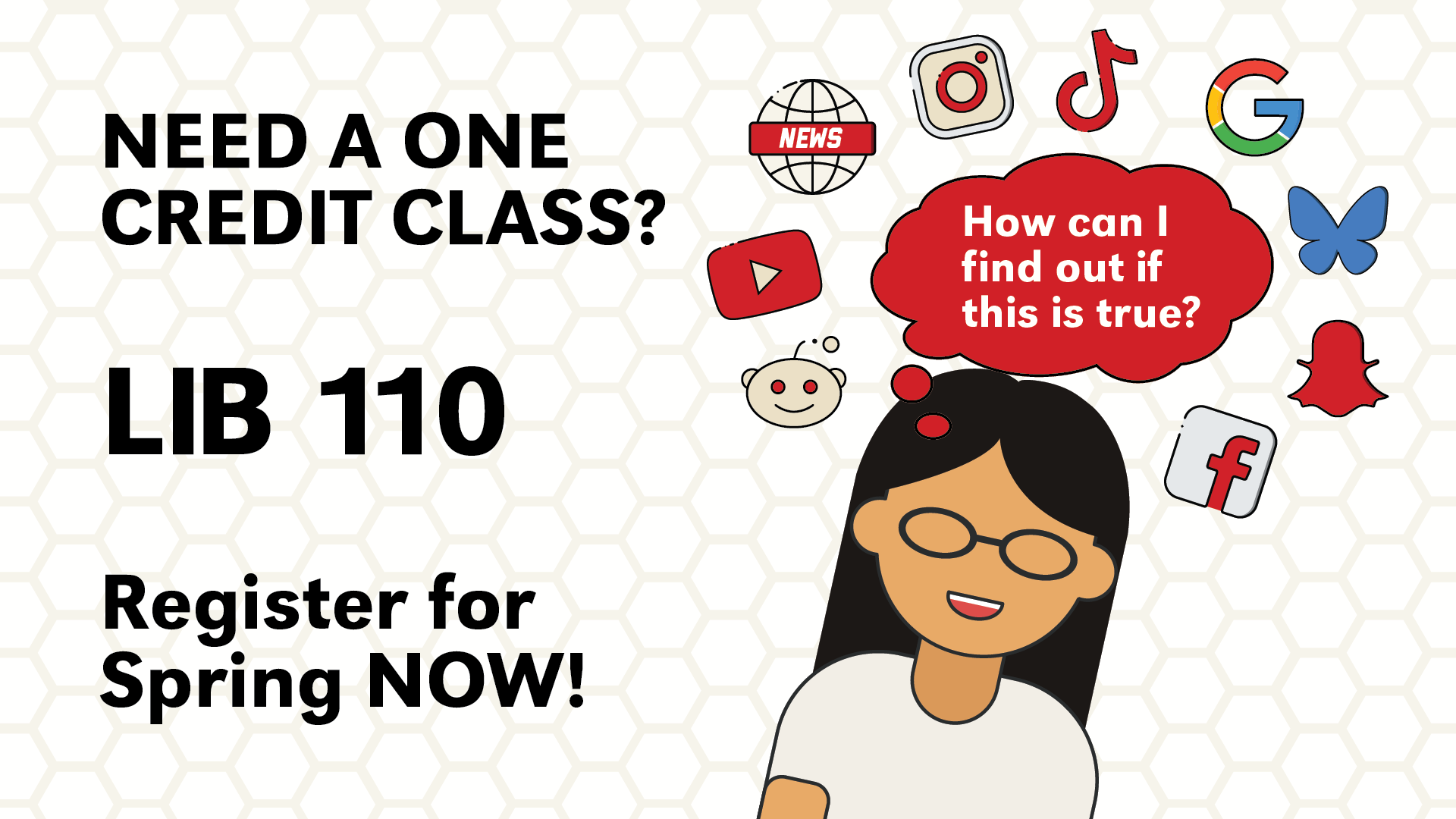
LIBR 110: Information and Your Life
2025 Spring Mini-Session | Wednesdays, 1:00-2:30, January 22 – March 12 | Love Library South 224 | 1 credit, pass / no pass
Course Description
Facebook, TikTok, Instagram, and your roommate. Google (AI Overview), Google Scholar, news feeds, and your uncle at the holiday dinner table. In our lives today, there’s a lot of information vying for our attention, always. Everyday life requires that we navigate a complex and polluted information ecosystem that is ever-increasingly impacted by Artificial Intelligence and Generative AI. In our current context, how do we make decisions about what’s true and reliable; what sources of information we can trust; what we choose to share and what we choose to dismiss? How do we know when we have enough or the “right” kind of information to join the conversation on an important topic or issue? Or, to make informed decisions? About our health and hobbies? About our education, our civic engagement and our (current and future) workplaces?
In this course, we will examine the function of information in our daily lives. We will interrogate some of the systems that influence the creation and circulation of information, paying particular attention to how these forces impact our access, evaluation and use of information from day to day. Relying on our own experiences, interests and curiosity, together we will discover how information works and learn strategies to harness the power of information to the benefit of our world and our own lives.
Course Learning Goals
By the culmination of this course, you will be able to:
• Describe how information and information systems work, how they impact you and what you can do about it.
• Assess information in a complex information environment.
• Apply strategies related to information discovery, evaluation and use in contexts that are relevant in your life.
Possible Topics & Course Units
• Using information to make critical life decisions
• Navigating medical information
• Assessing information for financial decisions
• Researching for political purposes such as civic and community engagement
• Understanding the social construction of information and trust
• Debating ethical information use, information persuasion and information addiction
• Identifying professional information practices
• Examining and experimenting with Artificial Intelligence and other technologies
Course Materials
There is no required text to purchase for this course. Instead, we will rely on articles, videos, podcasts, case studies, and lectures which you will be able to access online (and when relevant, print, if you wish) via Canvas. I will also encourage and rely on you to find and share relevant articles and media throughout the course, as we explore course topics together.